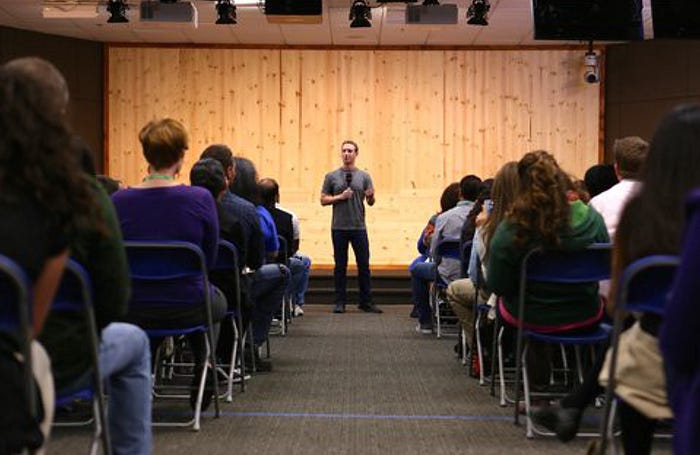Facebook’s recent town hall was a textbook example of everything you shouldn’t say when trying to grow your business. Mark Zuckerberg stated, “some of you might decide that this place isn’t for you, and that self-selection is OK with me. Realistically, there are probably a bunch of people at the company who shouldn’t be here.”
Mark tells Wall Street and investors that he will scale Facebook to become Meta, king of the metaverse. But his most primal instincts kicked in while reacting to the challenges the company has faced in the last few years — the congressional whistleblower hearings, data snafus, privacy issues, and Sheryl Sandberg leaving in June — and he lashed out at his own people.
Facebook created the current ecosystem and destroyed many smaller companies on their way toward dominance, and they are now a victim of their own strategy.
Mark Zuckerberg needs his people, a stable of ample talent, high-performing teams, and to improve his own optics. People don’t like working with assholes. None of the things leaders can do to create psychological safety, which numerous studies show that teams need to be successful, showed up here.
Google’s Project Aristotle was a tribute to Aristotle’s quote, “the whole is greater than the sum of its parts” (as the Google researchers believed employees can do more working together than alone). The project’s goal was to answer the question: “What makes a team effective at Google?” They found that teams need a certain number of things to feel psychologically safe. And they need psychological safety to perform at high levels.
“Psychological safety refers to an individual’s perception of the consequences of taking an interpersonal risk or a belief that a team is safe for risk-taking in the face of being seen as ignorant, incompetent, negative, or disruptive. In a team with high psychological safety, teammates feel safe to take risks around their team members. They feel confident that no one on the team will embarrass or punish anyone else for admitting a mistake, asking a question, or offering a new idea.” — Amy Edmondson, Harvard University
The culture at Facebook doesn’t seem to value or promote psychological safety. Blaming an entire employee population for a company’s lack of success rather than taking responsibility as a leadership team is a huge miss. Informing workers that they’ll have to do more with less as a matter of fact and that they may not be the right people for the job shows a remarkable lack of self-awareness. What about building people up? Celebrating their wins and giving them the credit they deserve. What about thanking them for sticking through the mess with you?
Yes, there are always underperformers, but to say to your entire population of workers, I’m OK if some of you decide to leave, at the bare minimum, is inappropriate leadership communication. We see this often, particularly in companies with revenue problems or potential acquisitions on the table.
This type of chest-beating toxicity is all too common in many male-dominated technology companies. It highlights how a lack of diversity in leadership limits nuance and creative innovation under pressure.
The irony is that Facebook has destroyed hundreds of legacy brands pursuing dominance. Now, due to the economy, Covid fallout, and data woes, they cannot use the same levers they have used in the past to be successful with capitalizing on customer volume.
Zuckerberg’s behavior and messaging to the staff at Facebook show his employees that he does not value them or their contributions. It implies that their psychological safety and personal success are not essential. It indicates that only the bottom line, the company’s stock value, and doubling down on future growth matter.
This type of leadership is harmful and incredibly demotivating. And Meta could lose all of its A players in Zuck’s attempt to clear the decks.
Maura Charles is the founder of Keep it Human. As a Product Leadership Coach and Consultant, she is on a mission to help teams and organizations embrace human skills like communication and emotional intelligence in their ways of working.
She brings 25 years of experience as an editor, product manager, and digital business leader to bear on the challenges of building human-centered high-performing tech teams.
If you’d like to develop more human business and tech teams that hum together to drive results, check out Keep it Human and follow Maura Charles on LinkedIn.

